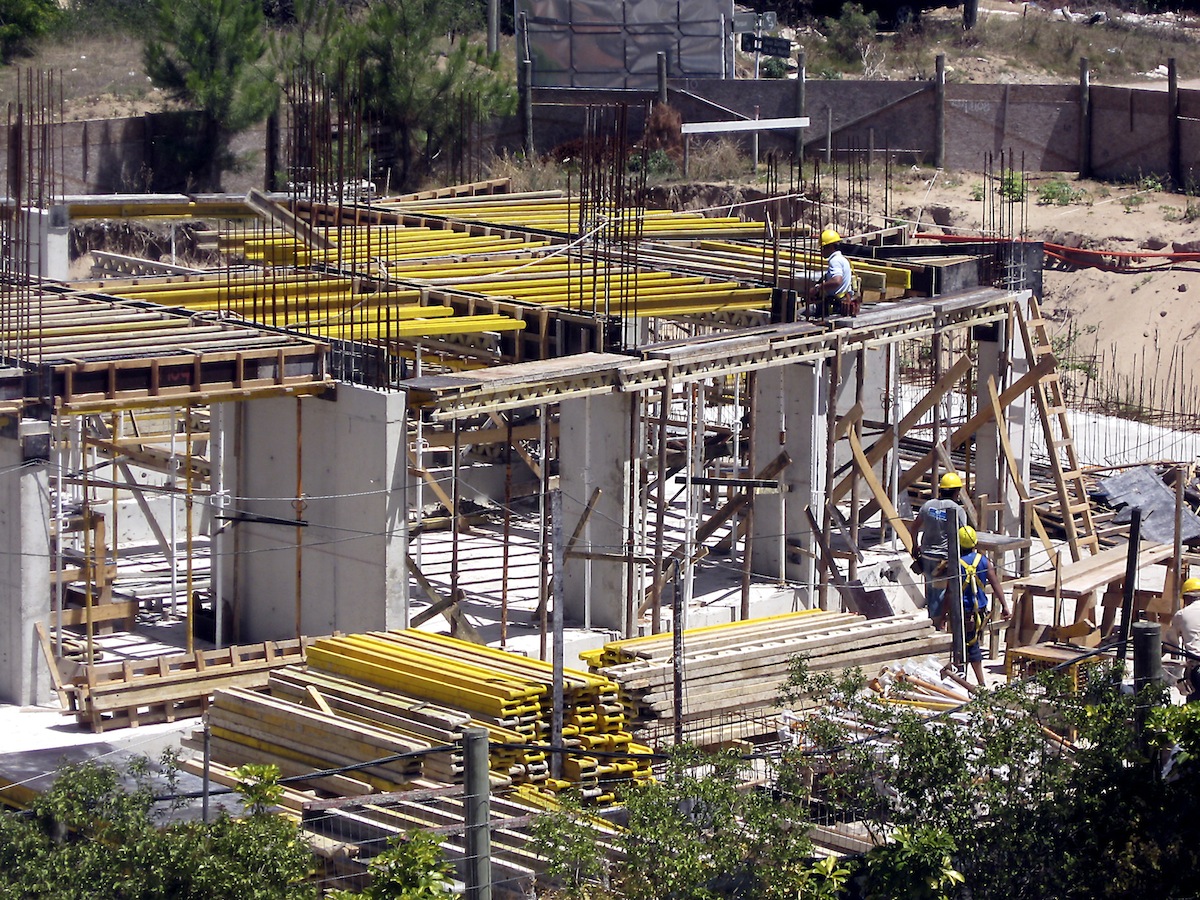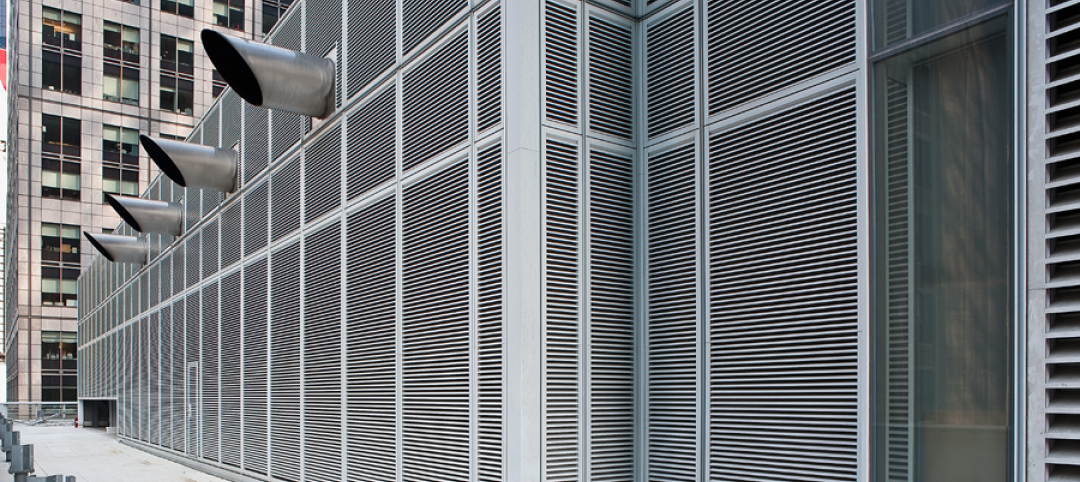Leopardo Companies, Inc. released its 2015 Construction Economics Report and Outlook, an essential guide to help business leaders, healthcare administrators, and government decision-makers understand the factors that impact construction costs.
This year’s report shows that different factors have opposing effects on construction costs. Low oil prices greatly reduce the cost of construction, and some material costs have come down over the past year.
But these factors reducing cost are more than offset by the strong increase in labor costs, brought on by a shortage of skilled workers as more than 25% of Illinois construction workers left the industry over the past five years. The overall effect is that construction costs are rising as development volume increases in Chicago and across Illinois.
“Organizations that are considering new construction and renovation projects need to understand the factors in the economy and in the construction industry that may affect the timing and cost of their projects,” said Leopardo President Rick Mattioda. “Our annual Construction Economics Report and Outlook offers a wealth of useful information to help people make informed decisions when building.”
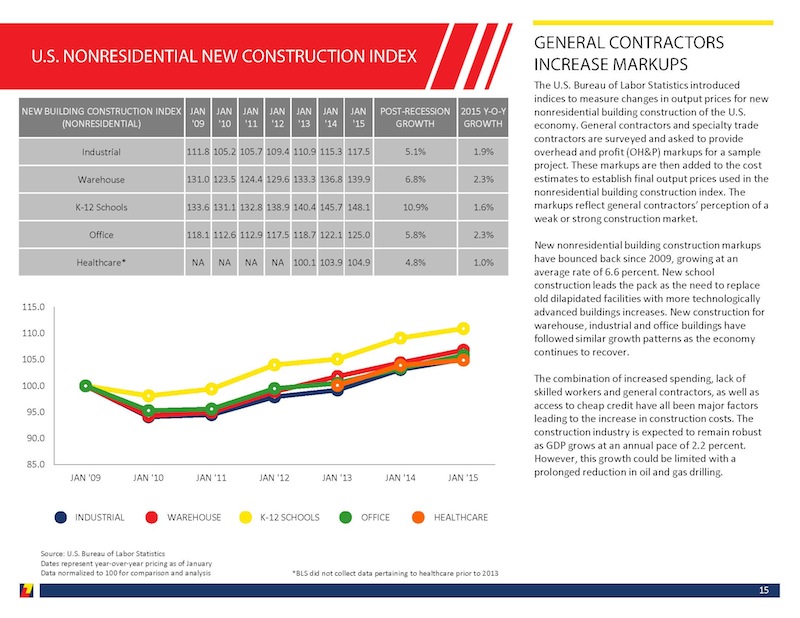
To create the report, Leopardo analyzed economic and construction industry data from universally respected sources, and utilized that data as well as the experience of the firm’s principals to forecast the direction of construction costs over the next year.
The report provides current and recent costs relating to:
• Construction materials, including steel, wood, concrete, asphalt, aluminum, copper and paint
• Oil, electricity and other energy sources
• Union and general wage increases for construction workers and specialty contractors
• Average markup of contractor and subcontractor bids
Also included in the report is economic data such as the Producer Price Index, the Consumer Price Index, employment projections for Illinois, and construction spending by industry.
The report concludes with a snapshot of construction volume and trends by property type, including office, warehouse, hotel, multifamily residential, healthcare, educational, entertainment, and public-sector properties.
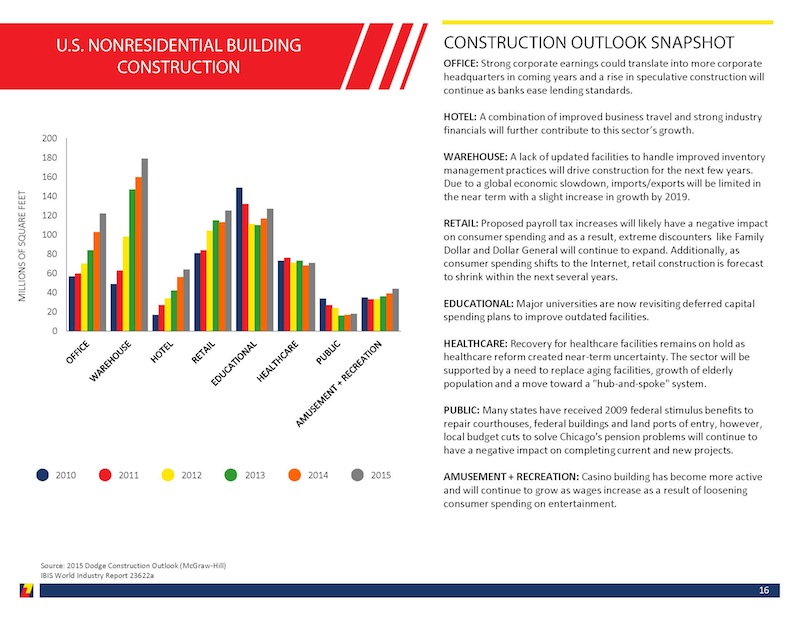
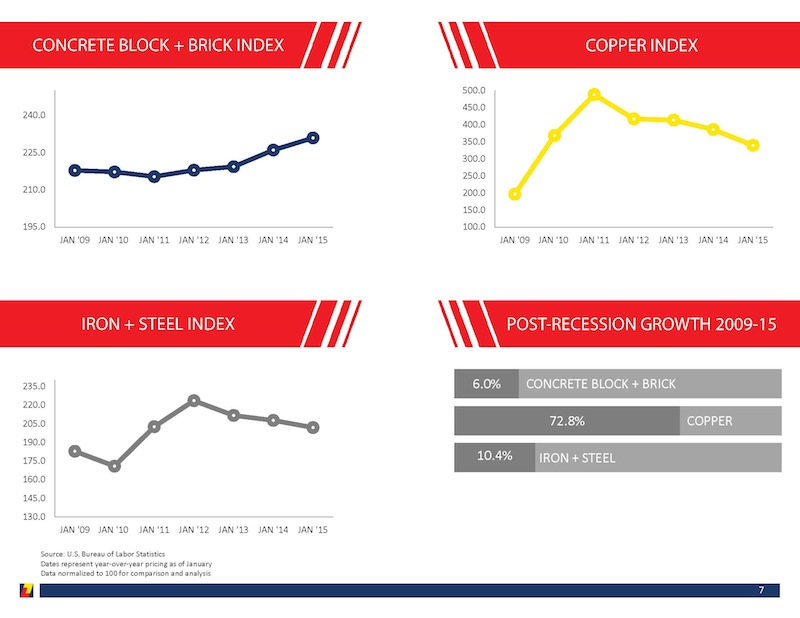
Related Stories
| May 3, 2012
Ground broken for $94 million hospital expansion at Scripps Encinitas
New facility to more than double emergency department size, boost inpatient beds by 43%.
| May 3, 2012
Rudolph and Sletten, Inc. wins CMAA award
Firm recognized for the renovation of Grossmont-Cuyamaca Community College’s Student Administrative & Griffin Student Center.
| May 2, 2012
Trimble acquires SketchUp 3D modeling platform
The transaction is expected to close in the second quarter of 2012.
| May 2, 2012
Building Team completes two additions at UCLA
New student housing buildings are part of UCLA’s Northwest Campus Student Housing In-Fill Project.
| May 2, 2012
Public housing can incorporate sustainable design
Sustainable design achievable without having to add significant cost; owner and residents reap benefits
| May 2, 2012
SMPS Foundation accepting applications for Garikes Scholarship
One outstanding scholar will be selected this year to receive a $1,500 scholarship award, to be used toward academic expenses, such as tuition and fees, books, supplies, and other similar expenses.
| May 2, 2012
Sasaki selected for 2012 National Planning Firm Award
The award recognizes a firm for its body of distinguished work influencing the planning profession.
| May 1, 2012
White paper discusses benefits of diaphragm and piston flushometer valves
The white paper highlights considerations that impact which type of technology is most appropriate for various restroom environments.
| May 1, 2012
Time-lapse video: World Trade Center, New York
One World Trade Center, being built at the site of the fallen twin towers, surpassed the Empire State Building on Monday as the tallest building in New York.


